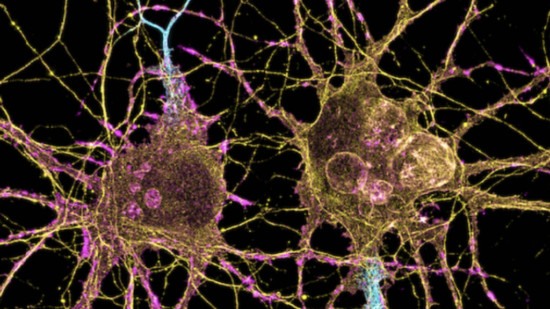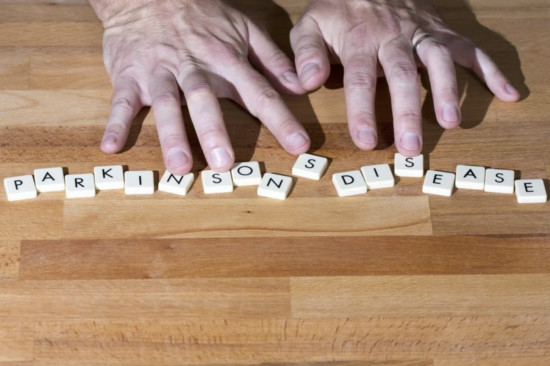Calls for Ukraine
Calls for Europe
Calls for USA

Parkinson`s disease is a disease of the nervous system that affects motor activity. This happens when the work of brain cells and neural connections that are responsible for controlling movement, disrupt their work, which leads to symptoms such as tremor, stiffness and difficulties with balance and coordination. It can also cause symptoms unrelated to movement, such as depression, anxiety, and memory problems.
Some things can worsen the condition. Such things include:
Medications against Parkinson`s disease should not be stopped abruptly and in no case should such a decision be made without consulting a doctor, otherwise you may face a significant deterioration in the condition.
The exact cause of the disease is not fully understood, but it is believed that it is a combination of genetic and environmental factors. Factors that may contribute to
the development of pathology, in descending order of importance:
Patients with Parkinson`s disease have such characteristic signs in the central
nervous system:
It is important to note that not everyone who is exposed to these risk factors will develop Parkinson`s disease. Some people with this disease, on the contrary, have no known risk factors.

Parkinson`s disease affects each person differently, and symptoms can vary greatly
in type and severity. The main symptoms:
It is important to note that not all people with the disease experience all of these symptoms, and over time, symptoms may vary in severity.
Parkinson`s disease is a neurodegenerative disease caused by the loss of dopamine—producing cells in the brain. There is no exact test for this disease, so the diagnosis is usually based on a combination of the patient`s medical history, neurological examination and certain diagnostic tests. For diagnostics , the
following are used:
It is important to note that Parkinson`s disease is a complex disease, and diagnosis can be a difficult task. It is important to consult a doctor who has experience in the diagnosis and treatment of this pathology, preferably in a medical center that specializes in the diagnosis of diseases of this kind.
Patients often make such a request. Currently, there is no specific blood test to diagnose Parkinson`s disease. It is diagnosed based on clinical symptoms and signs, and the diagnosis is usually confirmed by a neurologist. However, blood tests can be useful to rule out other conditions that may have symptoms similar to Parkinson`s disease, such as thyroid disease or vitamin deficiency. Blood tests can also help monitor the progression of the disease and evaluate the effectiveness of treatment. Researchers are actively working to identify biomarkers in the blood that may be useful for the diagnosis and treatment of Parkinson`s disease, but at the moment a blood test alone cannot confirm the diagnosis of Parkinson`s disease.
Parkinson`s disease is a chronic progressive disease that is currently incurable. However, there are many treatments that can help manage the symptoms and improve the quality of life of people with Parkinson`s disease. Treatment options may include:
The optimal treatment plan will depend on the person and their specific symptoms.

Stem cell therapy is an area of active research in the treatment of Parkinson`s disease. The essence of stem cell therapy is to replace dopamine-producing cells that are lost in the disease with new cells derived from stem cells.
There are various types of stem cells that can be used for this purpose, including embryonic stem cells, induced pluripotent stem cells, and mesenchymal stem cells.
Each type of stem cell has its advantages and disadvantages in terms of safety, effectiveness and availability.
Several clinical trials have been conducted to study the safety and efficacy of stem cell therapy in Parkinson`s disease.
In a phase 1 clinical trial published in 2011, researchers transplanted fetal brain stem cells into the brains of five patients with Parkinson`s disease. Patients had improved motor function and quality of life, but there were also some side effects, such as dyskinesia [1].
A phase 2 clinical trial published in 2017 examined the safety and efficacy of neural stem cells derived from human embryonic stem cells in the treatment of Parkinson`s disease. The study included 15 patients treated with stem cells and 13 patients treated with placebo. Stem cell treatment proved to be safe and well tolerated and resulted in some improvement in motor function compared to the placebo group [2].
Another phase 2 clinical trial published in 2018 examined the safety and efficacy of bone marrow-derived mesenchymal stem cells in the treatment of Parkinson`s disease. The study included 40 patients treated with stem cells and 20 patients treated with placebo. Stem cell treatment proved to be safe and well tolerated, and
motor function and quality of life improved somewhat compared to the placebo group [3].
Stem cell treatment involves transplanting stem cells into the brain to replace damaged or lost dopamine-producing cells in the substantia nigra (an area of the brain that is crucial for movement control). Dopamine is a neurotransmitter that is responsible for the transmission of signals between nerve cells that control movement. In Parkinson`s disease, the death of dopamine-producing cells leads to a shortage of dopamine in the brain, causing motor problems associated with the disease.
Stem cells are able to differentiate into various types of cells in the body, including neurons. Thus, stem cell therapy is aimed at replacing damaged or lost dopamine- producing cells in the substantia nigra with new, healthy dopamine-producing cells.
Stem cells are usually grown in a laboratory under controlled conditions before transplantation, and then implanted into the brain using stereotactic surgical technique, which involves the precise positioning of a needle or catheter in the target area of the brain. The procedure is usually performed under local anesthesia and while the patient is awake to provide feedback to the surgeon during the procedure.
Although there is no guaranteed way to prevent the disease, there are some lifestyle factors that can reduce the risk of developing the disease or delay its onset.
Actions that can be taken to potentially reduce the risk:

Parkinson`s disease can affect people of all ages, but it is most often diagnosed in people over the age of 60. It is estimated that about 1% of people over the age of 60 suffer from Parkinson`s disease. This pathology is more common in men than in women, and is more common in people of European descent than in representatives of other ethnic groups.
Parkinson`s disease and Alzheimer`s disease are two different neurodegenerative diseases affecting the brain, but they have some important differences.
Parkinson`s disease primarily affects movement, whereas Alzheimer`s primarily
affects memory and cognitive function. In Parkinson`s disease, the primary symptoms include tremor, rigidity, and
slowness of movement (also known as bradykinesia). Other symptoms may include balance problems, difficulty walking, speech problems, and swallowing. This disease is caused by the death of dopamine-producing neurons in the brain, which leads to a shortage of dopamine, a neurotransmitter responsible for controlling
movement.
On the contrary, Alzheimer`s disease primarily affects memory and cognitive functions, and the main symptom is progressive memory loss. Other symptoms may include confusion, difficulty speaking, and difficulty performing everyday tasks. Alzheimer`s disease is caused by the accumulation of beta-amyloid plaques and tangles of tau protein in the brain, which disrupt communication between nerve cells and cause damage to brain cells.
Although the symptoms of both diseases coincide to some extent, they are different disorders with different underlying causes and treatment approaches. A person can have both Parkinson’s disease and Alzheimer`s disease at the same time, although this is relatively rare.
MedTour recommends Dr. Andriy Kovalchuk (Ukraine) and Dr. Ivan Badyin (Serbia) as specialists working with different areas of stem cell treatment, including Parkinson`s disease. They will be able to understand what type of stem cells you need, how many courses you will need and what result you can expect from treatment.
For a more detailed consultation, please contact the doctor-coordinator of MedTour. It`s free.
Please rate the work of MedTour
